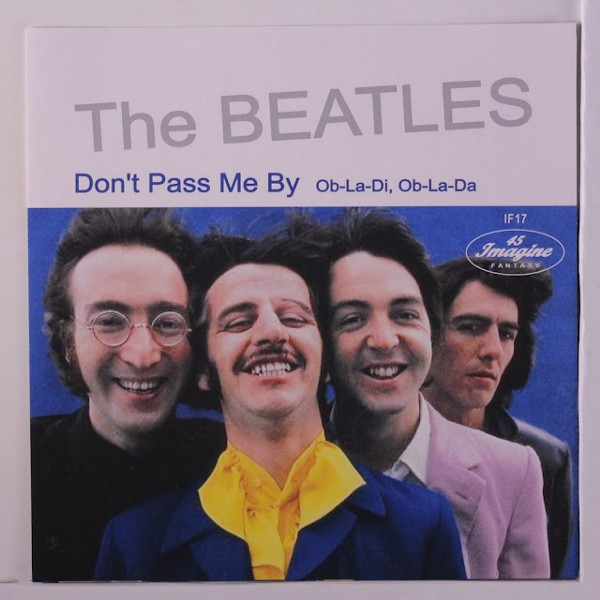Why did The Beatles 1966 tour of Japan start badly?
The European leg of the The Beatles 1966 world tour was designed to create a favourable impression on the band and its public. First there were a few dates in Germany, culminating in a triumphant return to Hamburg. Then on to Japan, a market where they had achieved unprec.edented penetration for a western act.
Finally The Beatles would visit The Philippines. This was the most Americanised of all Asian states, with a famously friendly population.. A warm welcome was confidently expected.
Nothing went according to plan.
In Hamburg there was embarrassment on the now cleaned-up Beatles in front of their old fans. At one concert Lennon told the audience, "Don't listen to our music. We're terrible these days." He would later explain: "We'd outlived the Hamburg stage and wanted to pack that up. We hated going back... We'd had that scene. Brian [Epstein] made us go back to fulfill the contract..."
After this uneasy revisiting of their past, The Beatles were relieved to be leaving Europe. Japan seemed to offer a respite from the relentless madness of Beatlemania. Japanese fans, they were assured, would be restrained in their devotion.
Until this point, The Beatles' management had been unaware of the controversy created by their choice of concert venue, the Budokan Arena in Tokyo. In fact the Budokan had a particular symbolic significance for Japanese nationalists, who saw it as a shrine to their war dead. Many angrily saw allowing a western pop group to play there as an affront.
Unsettled by this threat, The Beatles flew out of Hamburg. Their flight was scheduled to take a gruelling sixteen hours. This was extended when Typhoon Kit forced an unscheduled stop-over in Anchorage, Alaska.
After a lengthy spell on the tarmac, Brian Epstein managed to get The Beatles to a local hotel, where they checked in at 3.30a.m. By the time they awoke their arrival had been broadcast on local radio and local fans had surrounded the hotel.
Despite the tension, the concerts were a great success, further accelerating both Beatlemania and the liberalisation of Japanese youth culture.
Finally The Beatles would visit The Philippines. This was the most Americanised of all Asian states, with a famously friendly population.. A warm welcome was confidently expected.
Nothing went according to plan.
In Hamburg there was embarrassment on the now cleaned-up Beatles in front of their old fans. At one concert Lennon told the audience, "Don't listen to our music. We're terrible these days." He would later explain: "We'd outlived the Hamburg stage and wanted to pack that up. We hated going back... We'd had that scene. Brian [Epstein] made us go back to fulfill the contract..."
After this uneasy revisiting of their past, The Beatles were relieved to be leaving Europe. Japan seemed to offer a respite from the relentless madness of Beatlemania. Japanese fans, they were assured, would be restrained in their devotion.
A threat & a typhoon
The first sign of a potential problem came on the eve of their flight. An unsigned telegram arrived from Japan. It contained a cryptic warning: PLEASE DO NOT FLY TO TOKYO YOUR CAREER IS IN DANGER.Until this point, The Beatles' management had been unaware of the controversy created by their choice of concert venue, the Budokan Arena in Tokyo. In fact the Budokan had a particular symbolic significance for Japanese nationalists, who saw it as a shrine to their war dead. Many angrily saw allowing a western pop group to play there as an affront.
Unsettled by this threat, The Beatles flew out of Hamburg. Their flight was scheduled to take a gruelling sixteen hours. This was extended when Typhoon Kit forced an unscheduled stop-over in Anchorage, Alaska.
After a lengthy spell on the tarmac, Brian Epstein managed to get The Beatles to a local hotel, where they checked in at 3.30a.m. By the time they awoke their arrival had been broadcast on local radio and local fans had surrounded the hotel.
Once again The Beatles were effectively Five Star prisoners in their hotel suite, where they were forced to wait until their flight was cleared to continue.
Free Advertising
Tired and disgruntled, The Beatles complained they were not even able to change their clothes, which were still on the plane. Japanese Airline officials provided them with traditional Happi coats. This provided the airline with what has been described as 'the greatest (free) advertising in aviation history). |
| The Beatles arrive in Tokyo on June 29 wearing happi coats with a prominent JAL logo |
Arrival in Tokyo
When The Beatles finally got to Tokyo they were greeted by a police escort. They were also informed of the controversy surrounding their concerts, with the country largely dividing on generational lines. In an early sign of their disillusionment with Beatlemania, they gave a surly performance at an interminable press conference.Legacy
The concerts were then performed with unprecedented security, and The Beatles were unable to leave their hotels, though John and Paul did manage to sneak out on different occasions.Despite the tension, the concerts were a great success, further accelerating both Beatlemania and the liberalisation of Japanese youth culture.


